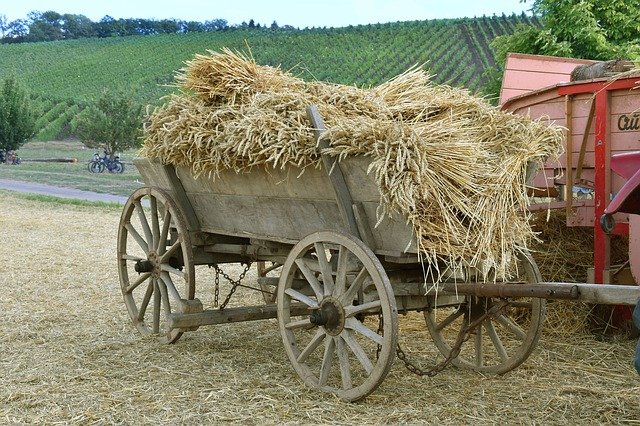The Way We Were
by Peggie Biessmann
I told my son the other day that when I was in primary school, there were inkwells in each desk and we dipped our pens in them and carefully shook off excess ink to ensure we did not blot our copybook. He looked at me as if I had casually remarked that I had a dinosaur as a house pet when I was growing up.
I started telling him about how things were “back then”. I lived on a small farm in the country, two miles from the nearest town or village to be more accurate. We didn’t get electricity until I was twelve, although of course the town had power before that.
“No television and no radio”, he said pityingly so I had to set him straight. Yes, we had a radio, a great big thing with smooth round knobs for twiddling to find the right station. It had a “wet” i.e., acid battery that needed charging and a dry battery. In addition to Radio Eireann, we listened to BBC Light Programme and Radio Luxemburg “208”.
Telephone? Well, no we didn’t have one of them either. If you wanted to make a call – which was seldom – you’d go to the post office and ask the woman there to connect you. After a lot of “hallo’s”, she would wave you into a tiny airless booth where you took the call. For very urgent calls – I remember only one from my childhood when my mother went to the garda station and asked to use their phone. I can’t remember why she had to do that.
For us farmers, there was threshing day. Threshing was a labour-intensive business. The sheaves had to be fed into the thresher continuously. Someone had to make the straw into a straw rick and the grain had to be secured in bags. The farmyard was always humming with activity when we got home from school. People came in twos and threes to have something to eat in the kitchen – mainly pig’s head if my memory serves me right. As children we thought it was great fun.
I once told an American about threshing day. He asked me how on earth we organised it without a telephone. So, I explained that my father would cycle out to the man who owned the threshing machine and they would make out a day for the threshing. Then, word was left at “the hotel” where nearly everyone took a drink after Mass to let them know what day the threshing was at our place. All the neighbours either came themselves or sent someone to help. My father went to all the threshings around. It worked perfectly.
It was the same with funerals. We got The Cork Examiner regularly and the first thing my father or mother did was check the death notices. Then there would be a discussion about attending a funeral. Sometimes my father cycled to a neighbouring parish or sometimes he and a few others hired a car between them to attend a burial. I remember we all went as a family now and again. I can still picture the “parlour” never used, reserved for good use, and the sobs of bereaved women. And sitting around for a high tea. It was a social occasion back then, too.
The thing that strikes me most now in our hectic world, is that when my father came back from a funeral or my mother from a shopping trip to Cork city, we all sat around the table and listened to their news of the big world. There was always plenty to talk about and we were all interested in what they had to say. Without wanting to sound the moral trumpet, isn’t it a pity that nowadays this just wouldn’t happen? No one would be remotely interested. Everyone would be on their mobile phones and anyway anything you had to tell them they’d have already seen on FaceBook or somewhere.
Ah yes, the way we were might have been a bit back of beyond – or a bit like the Waltons as my American colleague said – but I think we had as much fun, if not more than nowadays.

